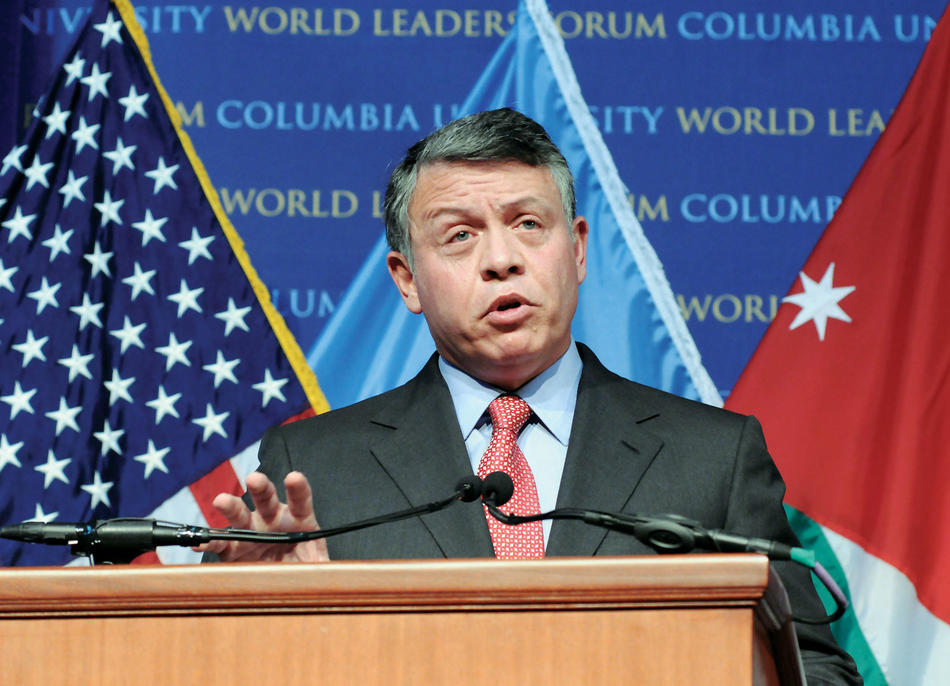“Demanding reform is the first step,” said Jordan’s King Abdullah II on September 23 as the Arab Spring turned into the Arab Autumn. “Delivering it is an entirely different — and much more difficult — proposition . . . one that is defined by each country’s specific history, circumstances, and challenges.”
The king spoke as part of Columbia’s annual World Leaders Forum.
“Today, in Arab lands . . . millions of voices are telling the world their story,” said the king. He identified three groups in particular: the unemployed, women and girls, and the marginalized.
The government of Jordan, like many in the region, has had to respond to pro-democracy, anticorruption demonstrations earlier this year, and the king emphasized his commitment to reform. “We have seen some real successes, but we have also witnessed resistance and inertia,” the king told the Low Library audience. “For me, the Arab Spring brings the opportunity to create the real reform we have sought. . . . In Jordan, we hope the path will be an evolutionary and consensual one.”
King Abdullah also criticized Israel while, five miles away at the United Nations Headquarters, Arab leaders were pressing the Security Council to recognize a Palestinian state.
“Today, many in Israel would like to reassure themselves, and the rest of you, that the unrest in the Arab street is unrelated to them,” King Abdullah said. “What is required, perhaps, is an Israeli Policy Spring that will see its politicians break free from the siege mentality and engage with its neighbors as equals.”
Jordan is one of the few countries in the region that maintain diplomatic relations with Israel.



